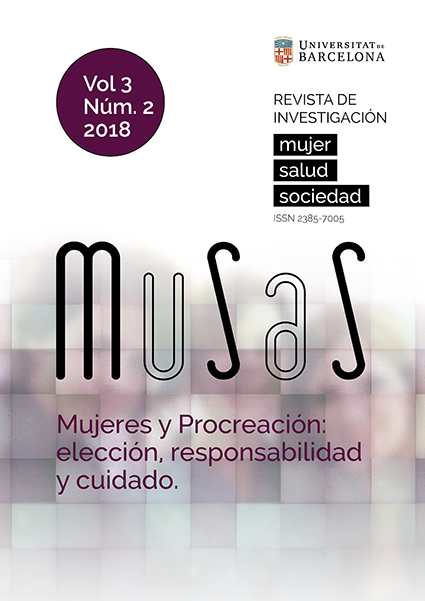A Case Study Analysis: Pilot Program in Secondary Education for Gender Equality in Adolescents
DOI:
https://doi.org/10.1344/musas2018.vol3.num2.1Keywords:
Sex, Society, Women, Students, Stereotypes, Gender roleAbstract
Everyone is born with a given sex; throughout life culture and society assign gender roles that people adopt as male and female stereotypes. Generally, women are placed in a position of subordination to men, who have power and access to resources that generate an unequal distribution of responsibilities, rights and income, among others.
The aim of this study is to inform first-year students of secondary education of the biological (sex) differences and the cultural roles and stereotypes associated with gender that are present in children's stories, songs, advertising, movies, videogames, etc.
A pilot study was carried out during the third trimester of the academic year 2016/17 with 98 first-year students of secondary education from a state assisted school located in Barcelona. A total of 36 pedagogical hours were needed to carry out the activities.
After an initial diagnostic survey, we determined the concepts the students previously had regarding the gender roles associated with the jobs.
Subsequently, a series of activities were carried out in several sessions, from which a series of results have been obtained and which are detailed in the Results and Conclusions sections of this article.
In general, the results show that, despite the social transformations and the changes that have been and are taking place in the 21st century, it is necessary to continue working with adolescents on subjects that for decades have been taboo or absent from schools and high schools.
Downloads
Published
Issue
Section
License
Authors publishing in this journal agree with the following terms:
- Authors hold the copyright, but MUSAS holds the right of first publication.
- Manuscripts will be disseminated with the Creative Commons CC BY-NC license, which allows sharing it with third parties as long as they recognize the authorship, the first publication right held by MUSAS and the license’s conditions






